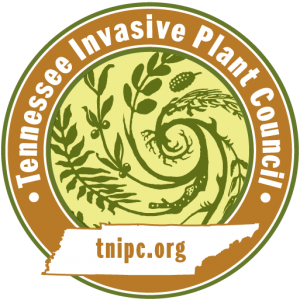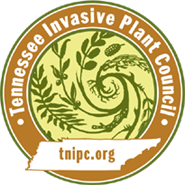
Welcome to the
Tennessee Invasive Plant Council
Cogongrass Found in Tennessee
In 2024, state officials found patches of Cogongrass (Imperata cylindrica) in seven counties — Hardeman and McNairy in West Tennessee and Anderson, Cumberland, Fentress, Knox, and Morgan counties in East Tennessee. Several state and federal agencies are coordinating efforts to train staff in identification and share responsibility for eradication. Vigilance is important to stay ahead of this plant and prevent widespread invasion. Please download and review the “Field Guide to the Identification of Cogongrass” brochure from USDA Forest Service and University of Georgia – Bugwood Network and this publication from UT Extension.
Spotted Lanternfly in Davidson County
The Tennessee Department of Agriculture confirmed the presence of Spotted Lanternfly in Davidson County in September 2023, issuing an advisory for Tennesseans to be on the lookout for this non-native insect, which is harmful to a range of crops and natural resources in our state. Wood products businesses and fruit growers may be especially vulnerable.
SLF are invasive insects that can spread long distances when people and vehicles move infested material or items containing egg masses. Adults emerge in late summer and early fall and are about one inch long and one-half inch wide with visually striking wings. Its favored host is Tree of Heaven, and it shows preference for grape vines and fruit trees. It may also appear in other trees such as black walnut, maple, and yellow-poplar. Infested trees may exhibit wilting, defoliation, dieback, yield loss, and in severe cases, death. SLF adults and nymphs typically gather in large numbers on host plants feeding on nutrients and water. SLF lay eggs on trunks of host plants and other flat surfaces.
Anyone seeing Spotted Lanternflies or an egg mass should take photos to complete the form on Protect Tennessee Forests website, click Report a Pest. Next, stomp the insect and destroy egg masses by smashing or dousing with rubbing alcohol. Check vehicles, boats, or campers to make sure they aren’t carrying any insects or eggs.
Tennessee wildlife managers removing Bradford pear trees
“All trees are not equal” is the Tennessee Wildlife Resources Agency’s message about Bradford pear trees in Tennessee. Wildlife managers have been removing the trees, which are invasive, from the state. “These fast growing trees are non-native to Tennessee and considered invasive. When they are overgrown, they slow the growth of other plant species that are more beneficial for wildlife species,” TWRA said. Removing them creates a healthier landscape for the state’s plant and animal life, according to the TWRA. See the video clip on WVLT-TV’s website.
Curious about Kudzu?
Watch this video from Clemson Forestry Extension explaining how kudzu got here, why it is problematic, and ways to effectively control, even eliminate, this voracious vine. Kudzu Identification, History and Control
How-to Videos: Control Methods
Click on these links to find quick, easy instructions for three common methods of controlling invasive plants.
Yale Article Documents Correlation of Insect Decline and Non-native Plants
The displacement of native plants by non-native species affects ecological relationships with insects and by extension birds, resulting in a negative impact on populations. An article in Yale Environment 360, published at the Yale School of the Environment, presents recent research on these food web effects.
Homeowners Invasive Plant Primer
This new step-by-step guide from TN-IPC carefully walks homeowners through the process of identifying invasive plants in the residential landscape and helps them select the best solution for effective and lasting control. Paired with our Landscaping brochures, “Invasive Plant Primer for the Home Landscape: Identify, Control, Replant” outlines the best way to move from a lifeless yard choked with invasive plants to an ecologically functional landscape of diverse native plants supporting area wildlife. Printed copies of the guide are available thanks to the Tennessee Division of Forestry and a grant from the U.S. Forest Service. Local television show, Tennessee’s Wild Side, recently featured TN-IPC’s homeowners primer. View the segment here.
TN-IPC in Tennessee
We updated our name, logo, Web site, and plant list, but our mission remains the same: to promote public awareness of the serious threats non-native invasive plants pose to natural areas and provide solutions to manage those threats. TN-IPC is a chapter member of the Southeast Exotic Pest Plant Council and the national organization, National Association of Invasive Plant Councils.
Donate to TN-IPC.
Join Us!
Join Us Today!
TN-IPC on Twitter
- RT @InvSp : It's World Pest Day today, a day to spread awareness of the importance of pest management. Invasive pests like the brown marmora… 4 years ago
Follow @TNIPC
